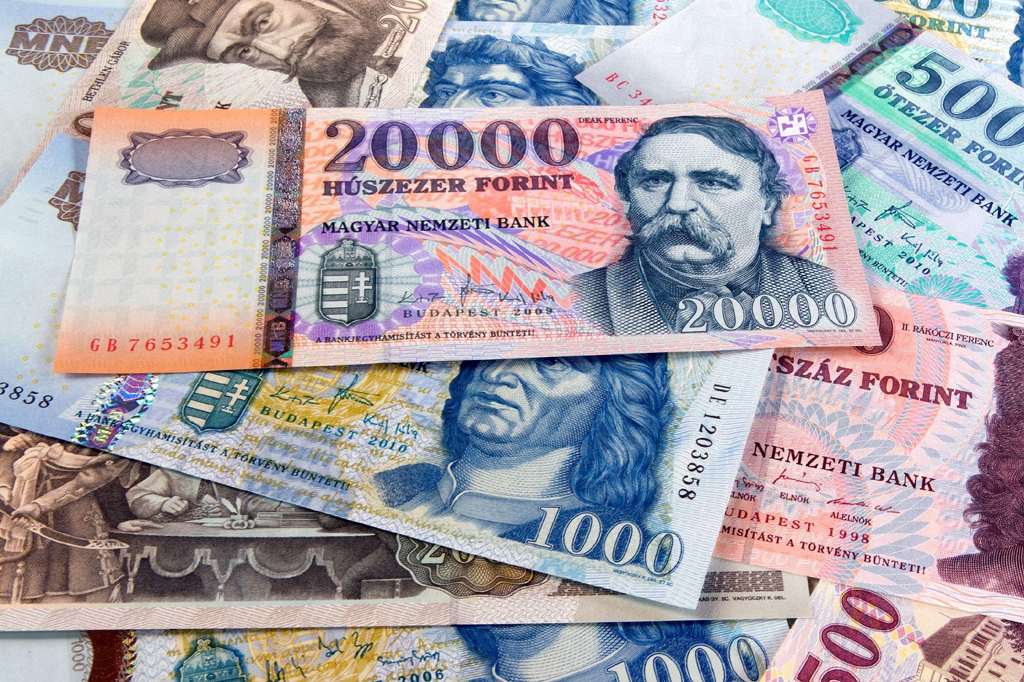 BUDAPEST: The forint hit a two-month high against the euro on Tuesday, outperforming other Central European currencies, after the National Bank Hungary said it would increase its gold reserves.
BUDAPEST: The forint hit a two-month high against the euro on Tuesday, outperforming other Central European currencies, after the National Bank Hungary said it would increase its gold reserves.
The planned 10-fold rise to 31.5 tonnes is an investment and “will provide safety and lower risk to Hungary,” the central bank’s governor, Gyorgy Matolcsy, told a news conference.
The bank is expected to keep interest rates at record lows at its meeting on Tuesday. It revamped its policy tools last month to prepare for monetary tightening, but did not indicate any concrete move.
“The reserves rise can be interpreted, too, as preparation for worse times,” one Budapest-based fixed income trader said, adding that the news should not affect government bonds but could strengthen the forint.
The forint gained to its strongest levels since Aug. 10, to 322 against the euro, then slipped to 322.15 by 0827 GMT, still up 0.1 percent from Monday.
The Hungarian 10-year yield, at 3.88 percent, was steady, not tracking a rise in the corresponding US Treasury yield.
Last week, Hungary’s yield curve became the steepest in at least 14 years, with the spread between the negative three-month bill yield and 10-year bonds widening to almost 4 percentage points.
The steepening was caused by a jump in US yields, coupled with worries that the central may not give up its loose policy in time to combat rising inflation.
The increased yields drew robust demand at the government’s latest auctions, on Thursday, as views over risks are mixed, the trader said.
The forint-denominated government bond holding of foreign investors is near its highest since 2015.
“Some investors think the yields became attractive, but others sell off the bonds,” the trader said.
A Budapest-based currency dealer said the forint may have gained because of bets that the central bank will say something about its plans for future monetary tightening in its comments after the rate decision, which is due at 1200 GMT.
A rise in the region’s main equities indices, after a slump last week to multi-week lows, indicated that international sentiment improved, market participants said.
Budapest’s and Warsaw’s indices gained almost 1 percent, with the former helped by a rise in the stocks of OTP, the region’s biggest independent lender.
The stock drifted further off the 10,000-forint psychological level even though Hungary’s parliament started to discuss a plan to end state subsidies to home savings bank deposits.
OTP is a key player in that market, but its fee revenues and dividends from the segment is a fraction of its other revenues, Equilor brokerage chief analyst Noemi Holecz said.
Post Views:
1
Source: Brecorder




























